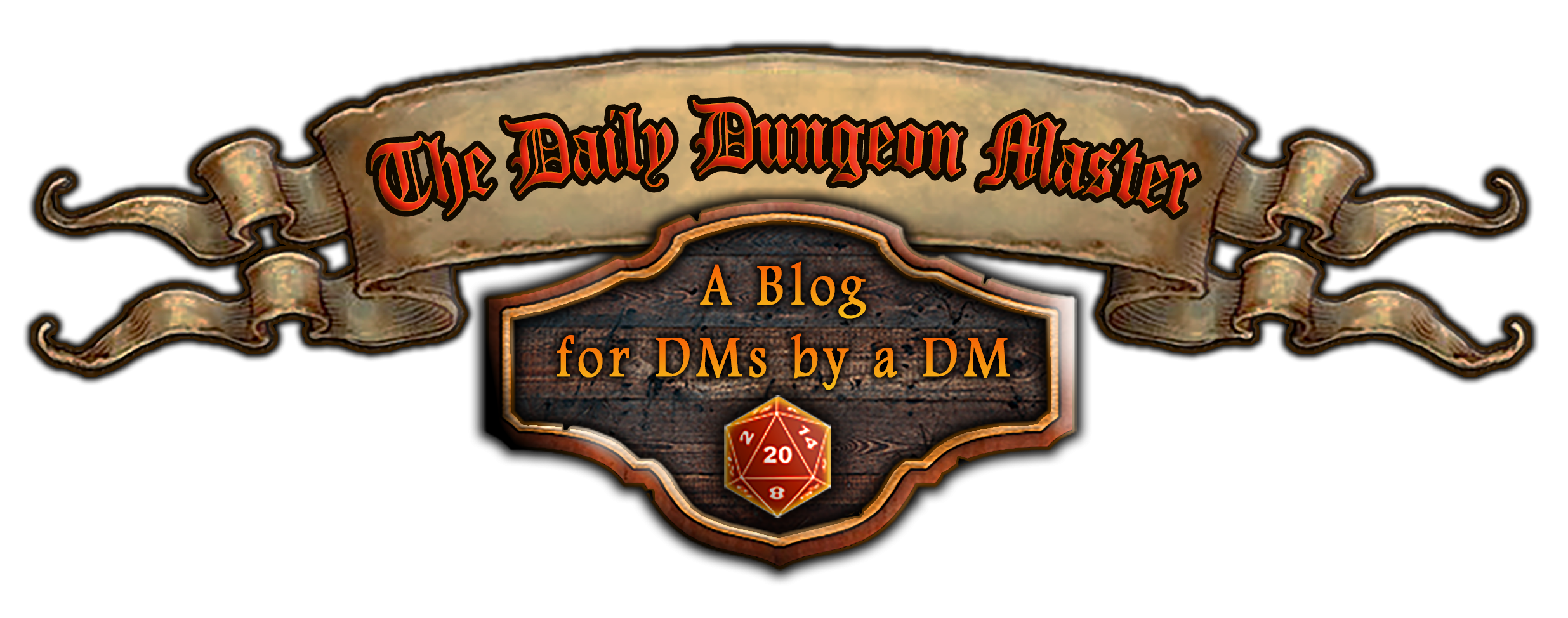So many a DM has shared their processes and tips for this, so I am going to share my own.
Really, it boils down to one thing: run games.
Sure it seems that there is more to it than that, but for new and/or aspiring DMs, my biggest “tip” for you is to actually run games.
THAT SAID:
Most new DMs will have a great story that they want to tell and will start right out of the bullpen trying to run or write their first adventure module or campaign, starting with the end and having an idea how it begins, but having zero real plans for the in-between. DO NOT FALL INTO THIS TRAP! This rarely works out.
If You have a story you want to tell, if you have a good idea for a campaign, write down some notes about it and hold on to it for later. Trust me.
What you really want to do is find a module that is already been written, known as I published adventure. There are many different sources for this. The first one, of course, are the ones published by Wizards of the Coast. They have a wonderfully large selection. Even better if you can purchase them via D&D Beyond, which is cheaper than buying them hardcover. That and it’s easier to take them with you to read.
Read through the adventure a few times, focusing on the chapter or section that your group of players will likely encounter in a session. Then do it again. And then again. Read over the stop blocks. Then do it again. Then read over the section and the stat blocks. See where I’m going with this?
If you haven’t guessed it, dungeon mastering involves an exorbitantly large amount of reading. Yes, reading. Writing will come later, but reading comes first. I’m not going to say that there aren’t dungeon masters out there that can pick up a pencil and the dungeon masters guide and the monster manual and sit down and write a module. Most of the people that can do those sorts of things have been storytelling coherent narratives for years.
Remember that Dungeons & dragons is a cooperative storytelling game. As a dungeon master, your job is to present the characters with the story that they play out. The more works that you put into the module, the more fun everyone generally has, or so my 25 years of experience with dungeon mastering has shown me. If you think differently, fight me.
In any case, back to the topic at hand: pre-published adventures. The other source that you can find these kind of adventures, even for free for those who are budget conscious, is the DMs Guild website (https://www.dmsguild.com). They have a wealth of information, to include adventures, new monsters, and short one shots, just to name a few.
Now, there our multiple reasons for running pre-published adventures to start out. The first reason is that it takes the guesswork out of most planning for sessions. All you’d have to do, as I outlined above, is read through the appropriate section a few times to make sure you understand the flow and the general nature of that section of the adventure, and roll with it at game time. Easy peasy lemon squeezy.
The second reason is that it exposes you to different kinds and styles of adventure writing. More specifically, it exposes you to how good adventures flow. there are several different kinds of adventures and encounters, all of which you can find in the DM’s Guide. Therefore, I’m not going to outline them here, but having a balanced and buried number of encounters throughout an adventure session is generally considered important for player and DM sanity. This of course assumes that you understand what play style your players want to engage in. Are they the kind that likes to solve puzzles? Give them a few more puzzles than normal. Are they big into role-playing? Give them opportunities to role play, both with each other and with non-player characters. Are they really into kicking down doors and killing monsters and breaking people’s stuff? Give them those Sweet, sweet combat encounters where they can shine. But notice that I’m not saying to give them all one thing or another. People get bored with monotony. Give them a variety still. It’s kind of like your parents telling you that you can’t just eat the main entree, but you have to eat your vegetables. It’s good for a player to have a variety.
The last reason is that, especially for time conscious Dungeon Masters, there’s a lot less work put into preparing your campaign session. I know I’ve touched on this with both of the previous reasons but it cannot be stressed enough how much life can get in the way of session planning. I’ve seen websites, particularly one whose name escapes me for the moment, that posted a how-to guide on Adventure riding and campaign planning in 30 minutes. That is wonderful for experienced dungeon masters, but terrible for new ones. Why, you may ask? because if you don’t have the foundational skill set, one of which is just experience, a lot of that campaign writing counsel is not going to be much use.
The last tip I am going to share for DMing is to actually read the DMs Guide and Player’s Handbook. Now, you don’t have to read it cover to cover, either of them. But you should be at least passingly familiar with the various rules regarding combat and movement and the individual classes and what their abilities are. You don’t even have to read it all at once. These two resources are essential.
Well, those are my tips for Dungeon Mastering for today. I’ll have more tips next week.
Have any comments? Leave them below!

Discover more from The Daily Dungeon Master Blog
Subscribe to get the latest posts to your email.

